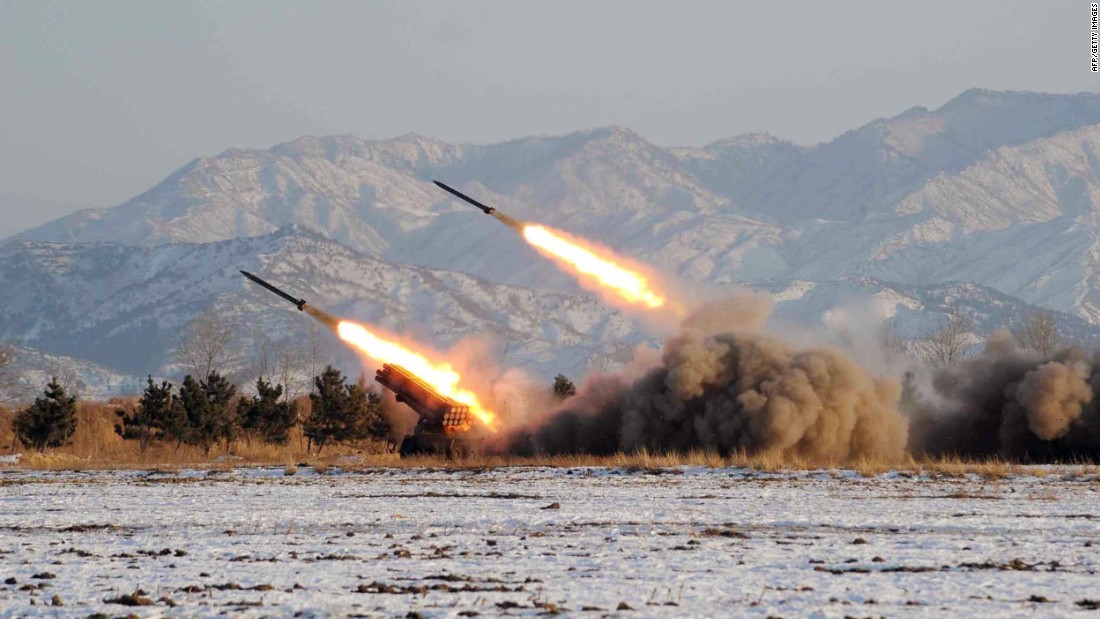The US intelligence community and the Defense Department are increasingly anticipating that North Korea will soon undertake a new round of testing of its missile and nuclear program, according to half a dozen US officials.
The officials are closely watching the regime's programs and there are growing intelligence indicators of fresh and concerning activity inside North Korea. The major source of that intelligence for the US is spy satellites that survey the regime from overhead, so there is little ability to fully understand what leader Kim Jong-un may decide to do.
At the same time, these officials said, North Korea is taking fresh steps to disguise its activities, knowing satellites are overhead watching. There is intelligence indicating the regime is moving equipment to areas they have not used before, believing the US cannot track them there. As always, the regime sometimes moves vehicles, launchers and personnel around without any launches or tests, simply hoping to confuse the US, officials say.
In an unusually detailed public acknowledgment of what may be coming, Gen. Joseph Dunford, chairman of the Joint Chiefs of Staff, issued a statement after he spoke to his South Korean counterpart, Gen. Sun Jin Lee, on Tuesday.
Dunford said the two "assessed changes in North Korea's nuclear and missile threat" but then went on to say the two "discussed response options."
Dunford's statement also said the two "recognized the possibility that North Korea could conduct provocative actions" during ongoing US-South Korean military exercises or during upcoming celebration periods in North Korea.
The latest indicators, US officials told CNN, is that North Korea has moved some launch equipment that is associated with an intercontinental ballistic missile launch.
The equipment has been observed near parade grounds, but the concern is it could quickly become part of an actual launch. The US does not believe a North Korean ICBM could currently reach the US, but any launch of a missile with that potential range would be very provocative, one US official said.
At the same time, there is movement of equipment in other areas associated with the potential of mobile launchers firing solid-fueled medium-range missiles. The regime recently fired one of those missiles, renewing concerns that US satellites have a limited ability to track fast-moving mobile launchers.
US officials emphasize the intelligence from satellites is changing and that North Korea could test a missile or a nuclear device at any time with no warning being observed by the US.
Even as all of this is happening, there is also evidence North Korea may be preparing for another underground nuclear test.
US satellites have watched a test site for several weeks and seen fresh signs of digging and activity at tunnel entrances. The commercial website 38 North recently posted satellite imagery showing continuing activity at the Punggye-ri nuclear test site indicating the area was ready for an underground test as soon as one is ordered by Kim.
All of this comes as the Trump administration is reviewing whether there are fresh options for dealing with North Korea, a situation that the Trump and Obama administrations have agreed is extremely difficult to manage.
Privately, US military commanders have said any pre-emptive strikes by the US would likely result in a North Korean attack on Seoul, leading to disastrous consequences.
On an overseas trip to Asia, Secretary of State Rex Tillerson acknowledged in Tokyo, "I think it's important to recognize that the diplomatic and other efforts of the past 20 years to bring North Korea to a point of denuclearization have failed."
That sentiment was already expressed late last year by then-Director of National Intelligence James Clapper, who called the effort to get North Korea to give up its nuclear program "probably a lost cause."



Add new comment